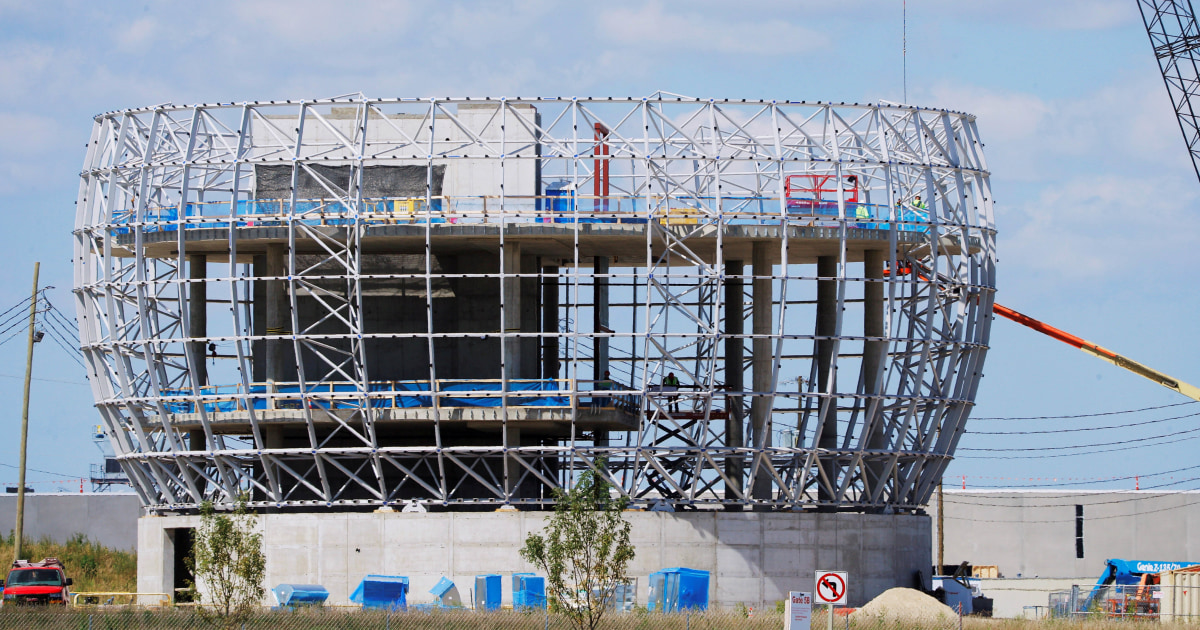Taiwanese electronics maker Foxconn is in the process of drastically scaling back a planned $ 10 billion plant in Wisconsin, confirming its withdrawal from a project former President Donald Trump once called “the eighth wonder of the world.”
Under a deal with the state of Wisconsin announced Tuesday, Foxconn will cut its planned investment from $ 10 billion to $ 672 million and cut the number of new jobs from 13,000 to 1,454.
The Foxconn-Wisconsin deal was first announced with much fanfare at the White House in July 2017, with Trump bragging about it as an example of how his “America first” agenda could revive US technology production.
For Foxconn, the investment pledge was an opportunity for its charismatic founder and then-chairman, Terry Gou, to build goodwill at a time when Trump’s trade policy threatened the company’s cash cow: building Apple’s iPhones in China for export to America.
Foxconn, the world’s largest contract manufacturer of electronic devices, proposed a 20 million square foot manufacturing campus in Wisconsin that would have been the largest investment in US history for a new location for a foreign-based company.
The proposed 20 million square foot manufacturing campus in Wisconsin would have been the largest investment in US history for a new location for a foreign-based company.
It needed to build advanced flat panel displays for TVs and other devices and immediately establish Wisconsin as a destination for technology companies.
But industry executives, including some at Foxconn, were very skeptical of the plan from the start, pointing out that none of the critical suppliers needed for flat panel display manufacturing were located near Wisconsin.
The plan also met with local opposition, with critics denouncing a taxpayer giveaway to a foreign company and provisions of the deal that granted extensive water rights and allowed the acquisition and demolition of homes through a eminent domain.
In 2019, the village where the factory is located had paid just over $ 152 million for 132 properties to make way for Foxconn, plus $ 7.9 million in relocation costs, according to village records obtained by Wisconsin Public Radio and analyzed by Wisconsin Watch.
Foxconn, formally called Hon Hai Precision Industry, said the new agreement gives it “flexibility to pursue business opportunities in response to changing global market conditions.” The company said that “the original projections used during the 2017 negotiations have changed at this point due to unexpected market fluctuations.”
After abandoning its plans for advanced displays, Foxconn later said it would build smaller, earlier-generation displays in Wisconsin, but that plan never materialized either.
Ahead of Tuesday’s announcement, Foxconn Chairman Liu Young-way told reporters in Taipei that the company is currently making servers, communications technology products and medical devices in Wisconsin, adding that electric vehicles have a “promising future there.” He didn’t go any further.
Liu had previously said that the infrastructure was in place in Wisconsin to make electric vehicles because of its proximity to the traditional heartland of the American automotive industry, but the company could also decide on Mexico.
Hon Hai shares fell as much as 1.6 percent Wednesday morning.
Wisconsin Governor Tony Evers said the new deal will save Wisconsin taxpayers a total of $ 2.77 billion compared to the previous contract, maintain accountability measures requiring job creation to receive incentives, and hundreds of millions dollars in local and state infrastructure investment in support. of the project.”
Evers said the Taiwanese company under the Wisconsin Economic Development Corporation-Foxconn deal will be eligible for up to $ 80 million in performance-related tax credits over six years if it meets its employment and capital investment targets. He stressed that the incentives were in line with each company’s.
Foxconn is eligible for up to $ 80 million in performance-related tax credits over six years.
The state will reduce tax credits allowed for the project from $ 2.85 billion to $ 80 million.
The original Wisconsin package also included local tax breaks and road and road investments by state and local governments, bringing total taxpayer-funded grants to more than $ 4 billion.
Foxconn noted that it has invested $ 900 million in Wisconsin since 2017, including several facilities in the state.
According to Wisconsin Public Radio data, the state has already spent more than $ 200 million on road improvements, tax exemptions, and grants to local governments for employee training and employment.

